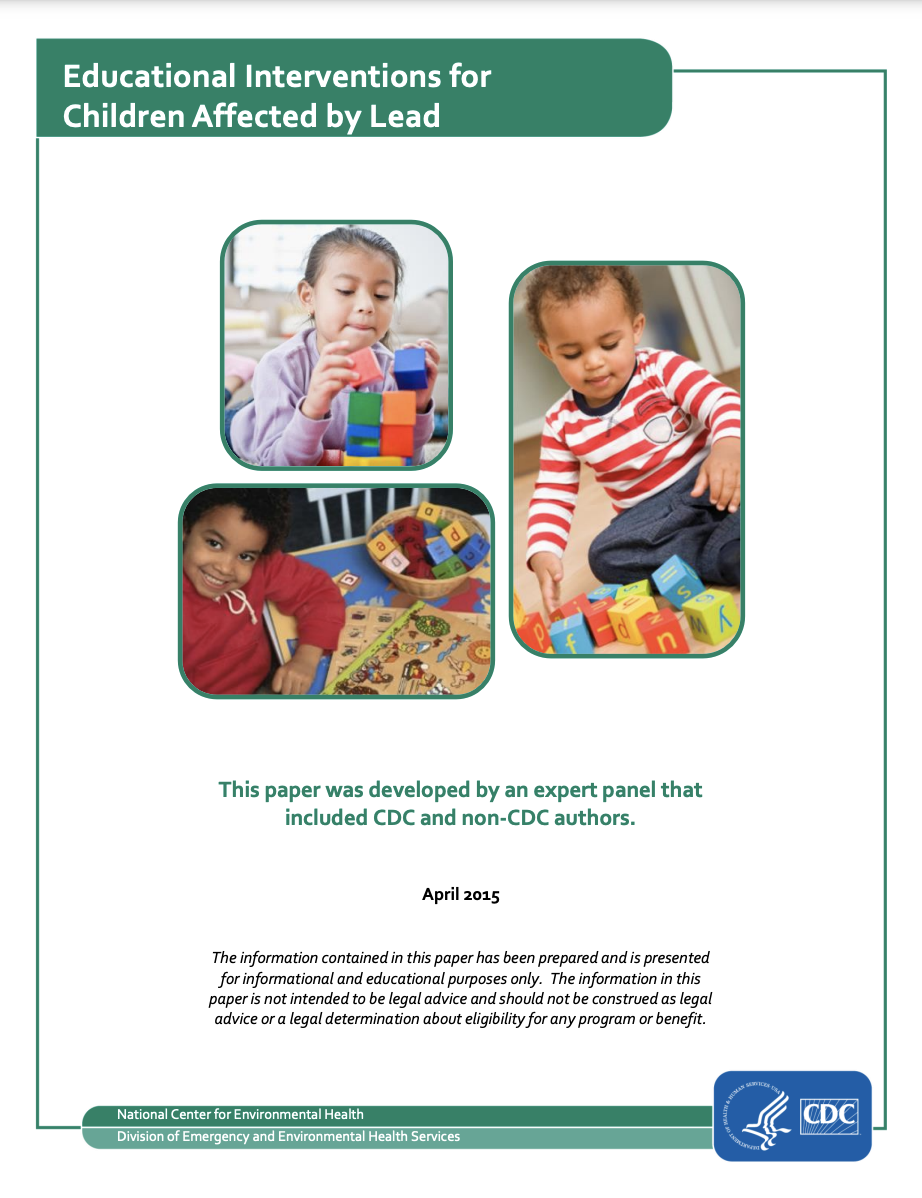This document reviews current knowledge and practice of the early care and educational systems and describes key ways that these systems can support improved outcomes for lead-exposed children, such as 1) Streamlined access to developmental assessment, intervention and special education services, and by conducting a neuropsychological assessment of executive function in addition to a developmental assessment to identify cognitive and functional deficits in lead-exposed children with HBLLs. 2) Consistent interpretation of provisions in the Individuals with Disabilities Education Act (IDEA) and Americans with Disabilities Act (ADA) that require provision of assessment and educational interventions, including mechanisms to ensure that children with a history of HBLLs receive the services to which they are entitled. 3) Technical advice on the implications of the connection between lead exposure and educational results for educators, state and local governments, parents, pediatric health care providers, lead poisoning prevention programs, and others who work with young children.
Resource type
Report
Geographic area
Global
